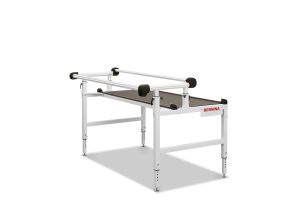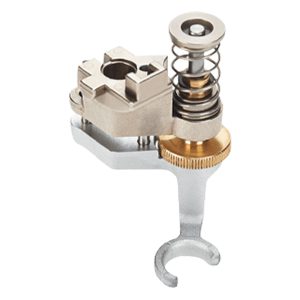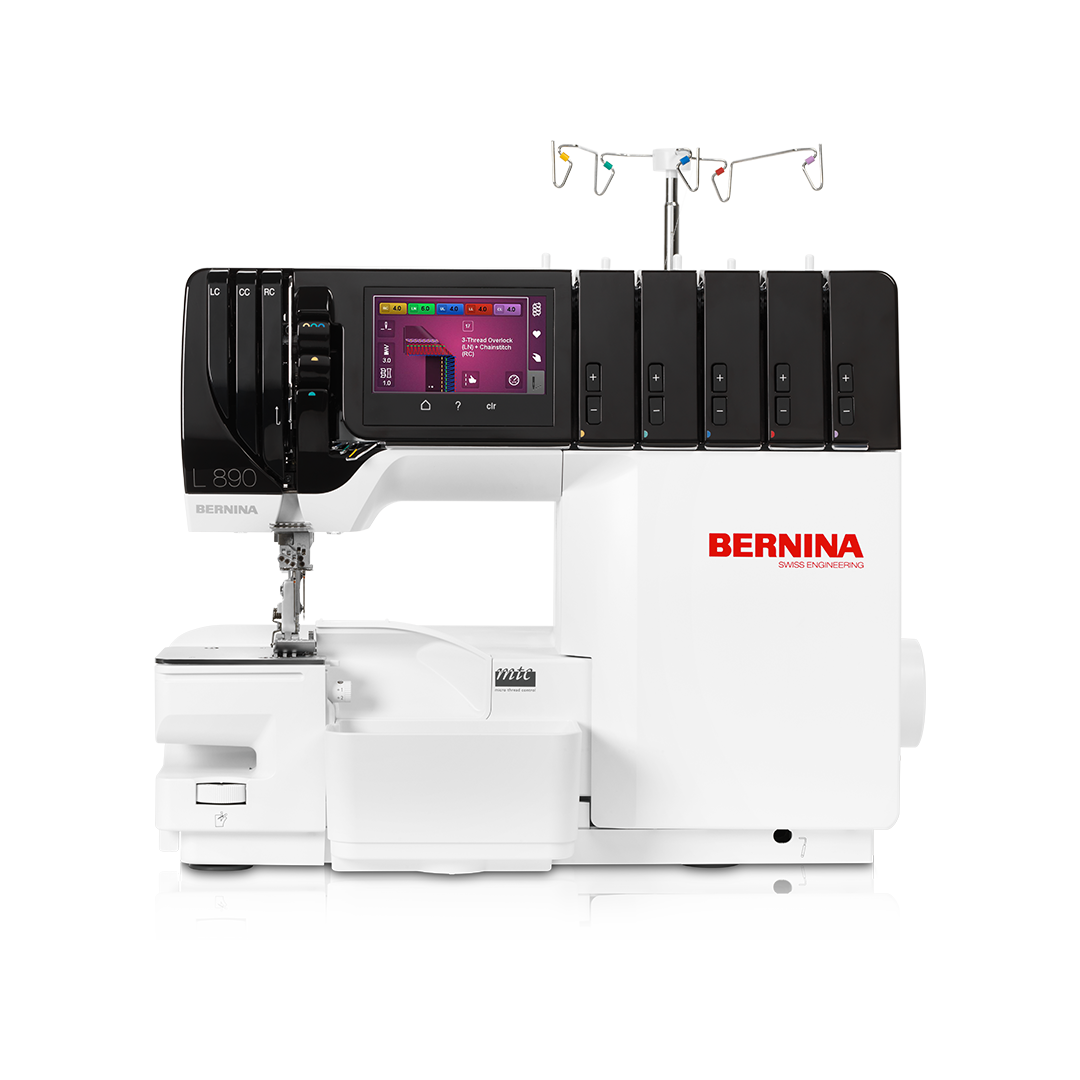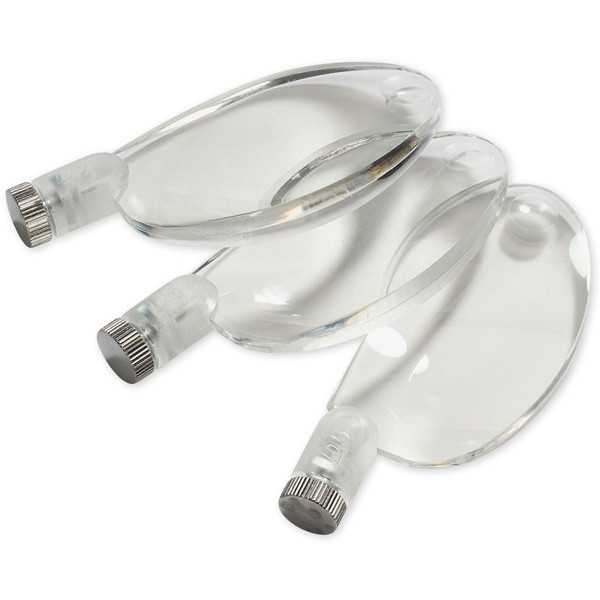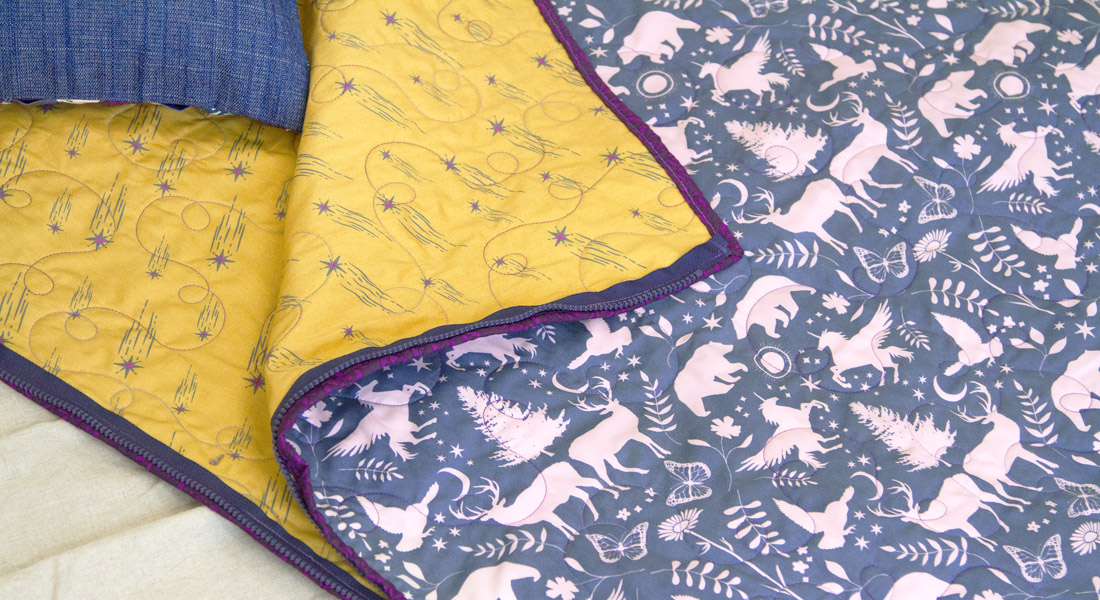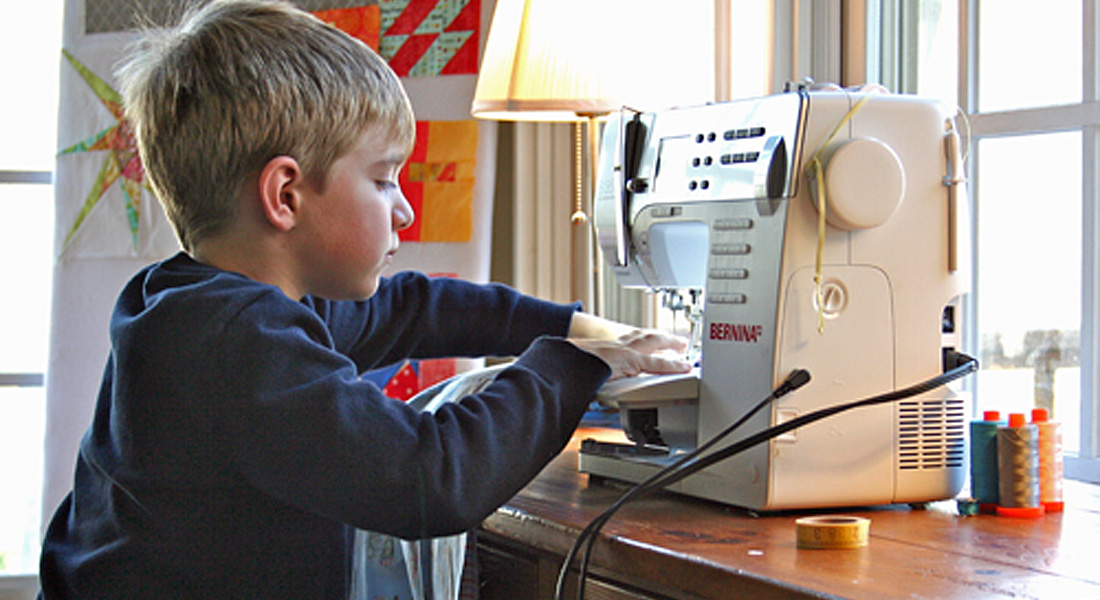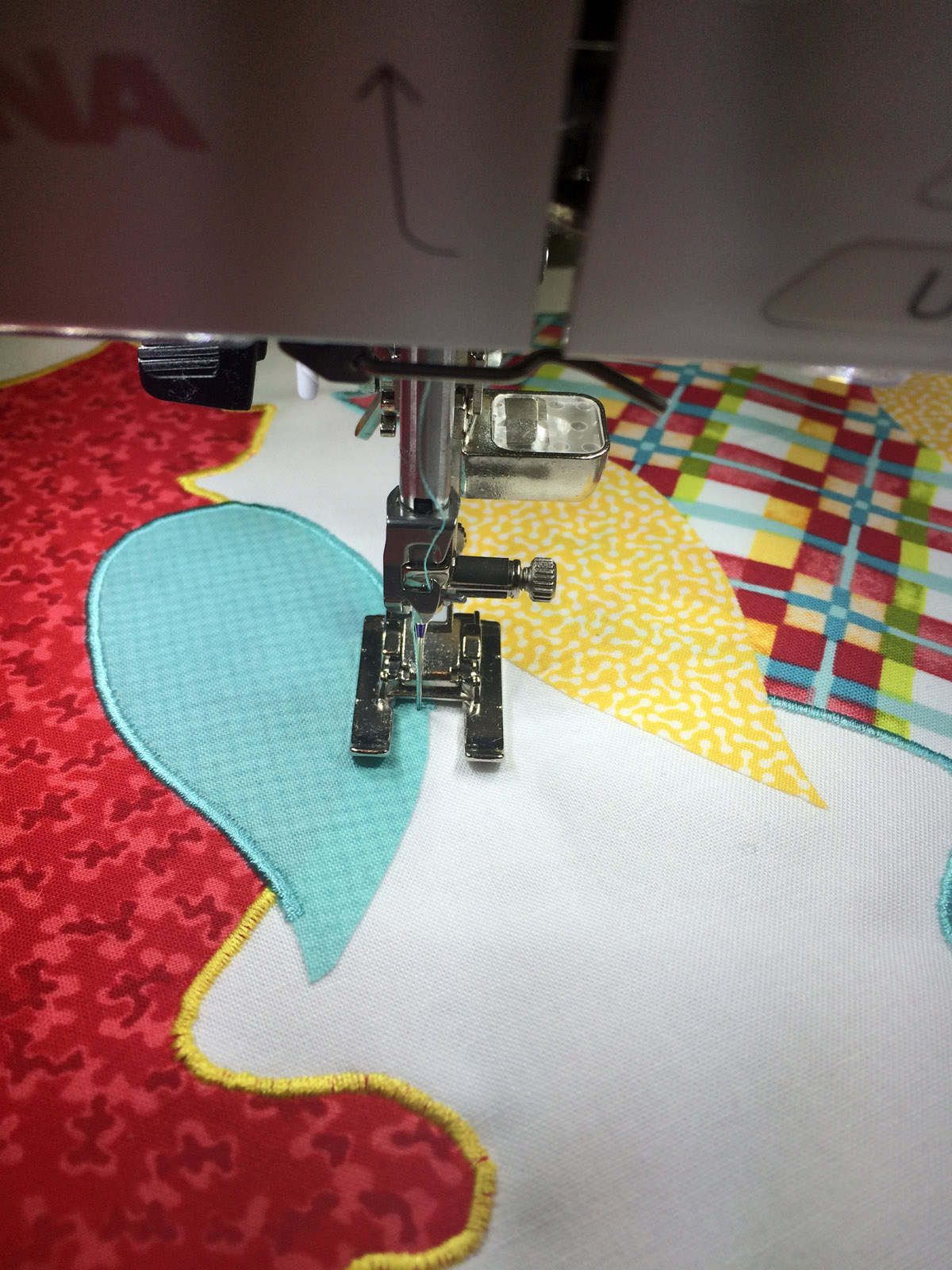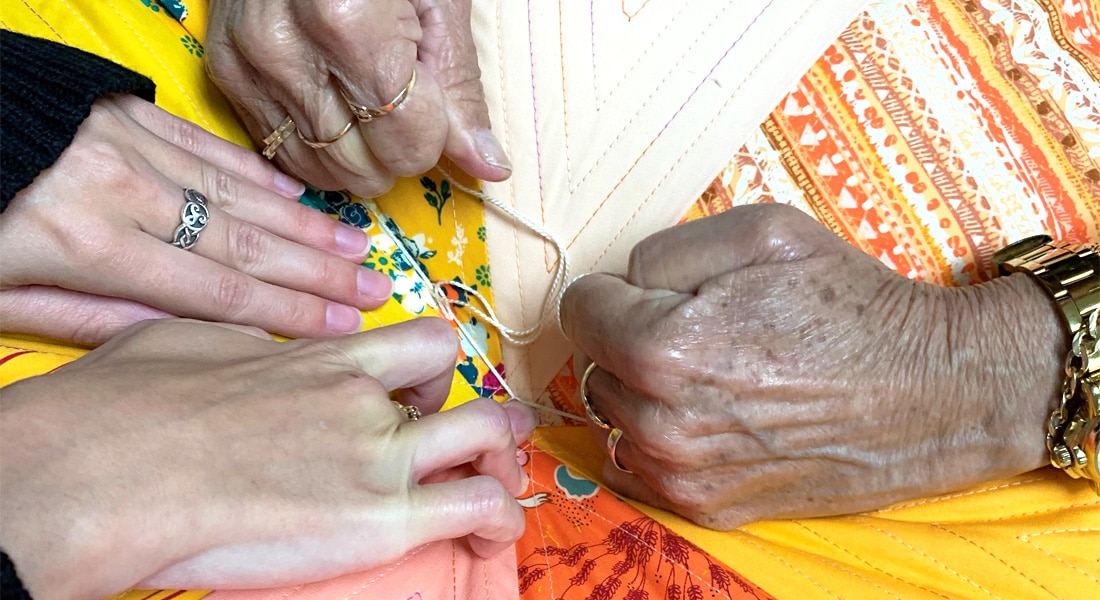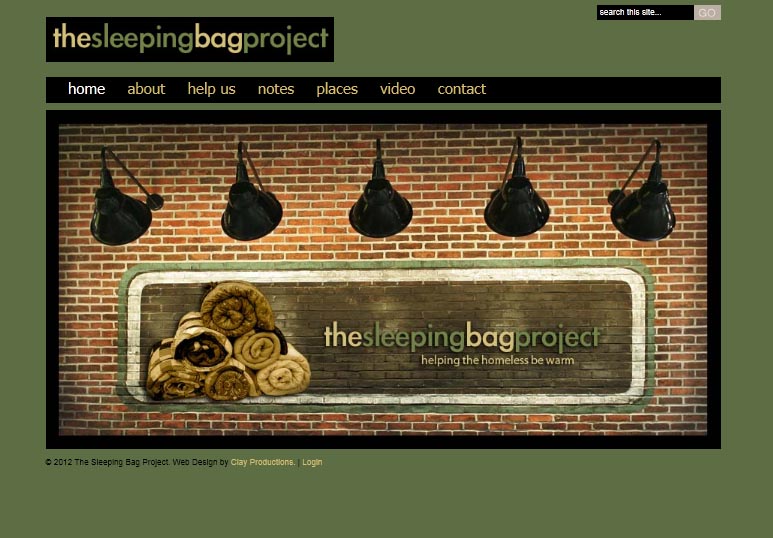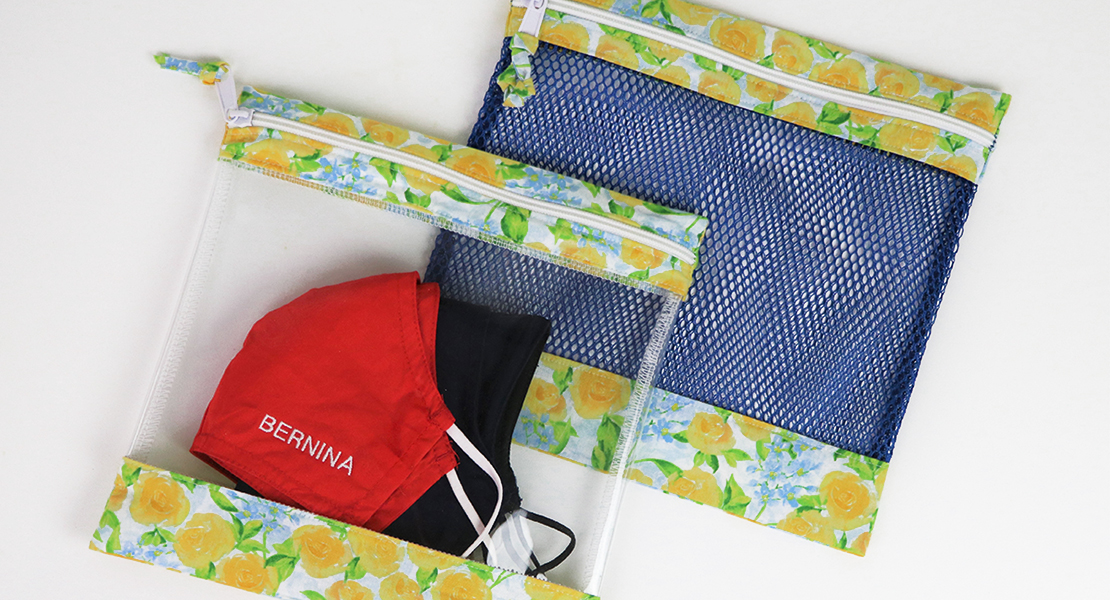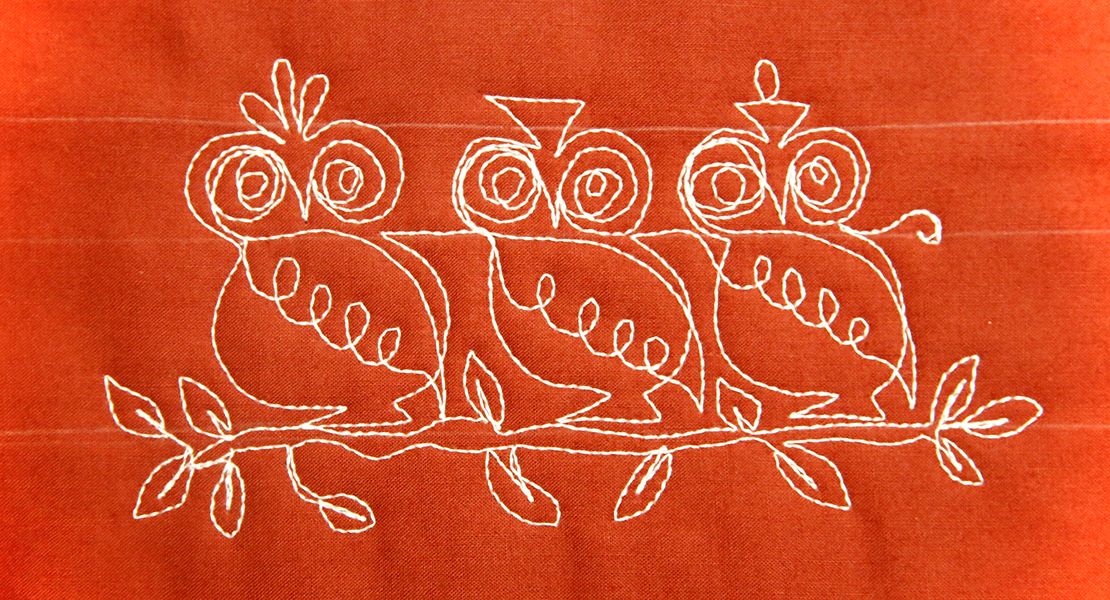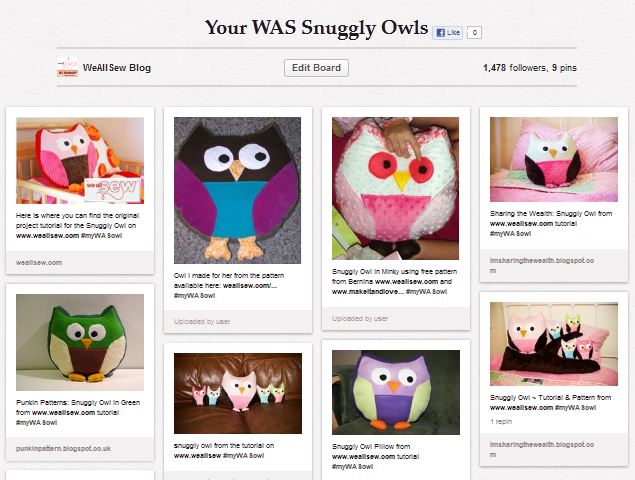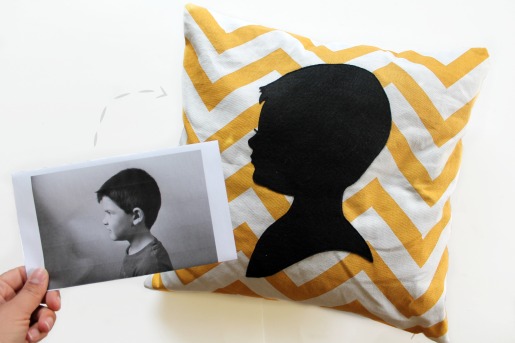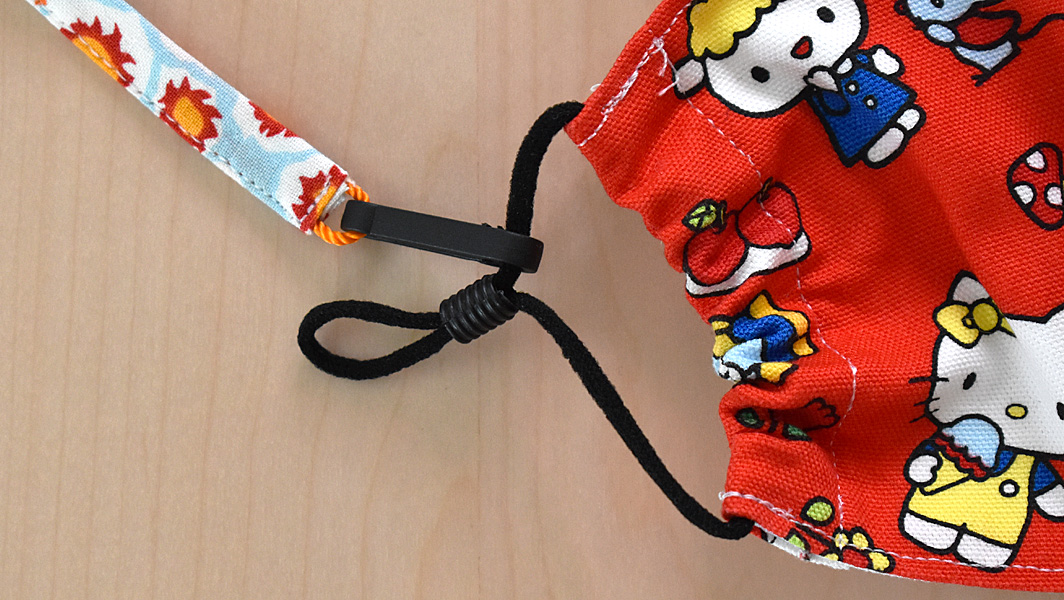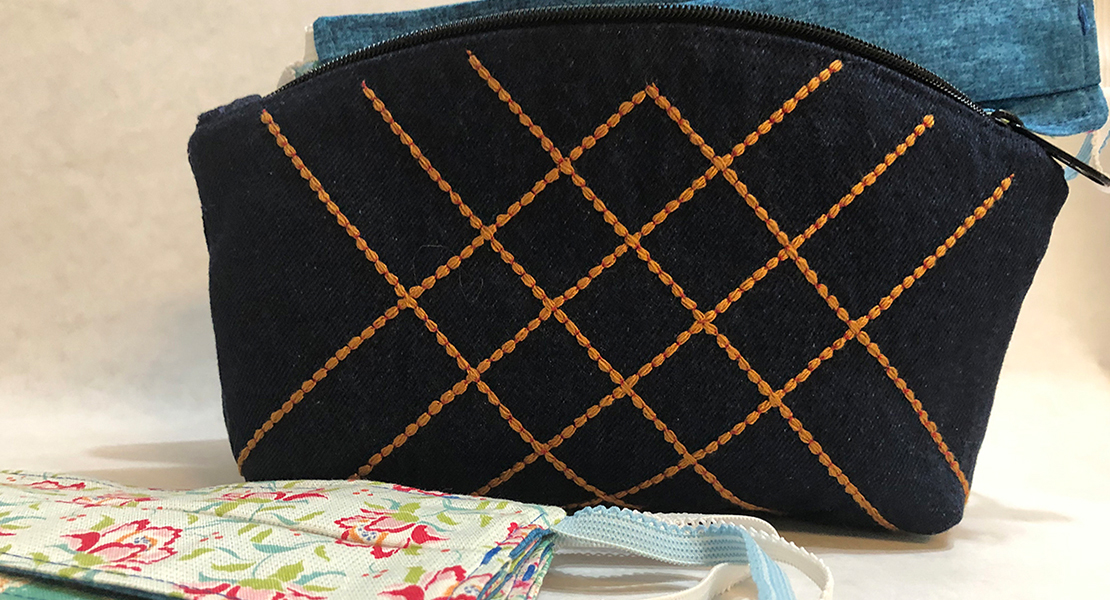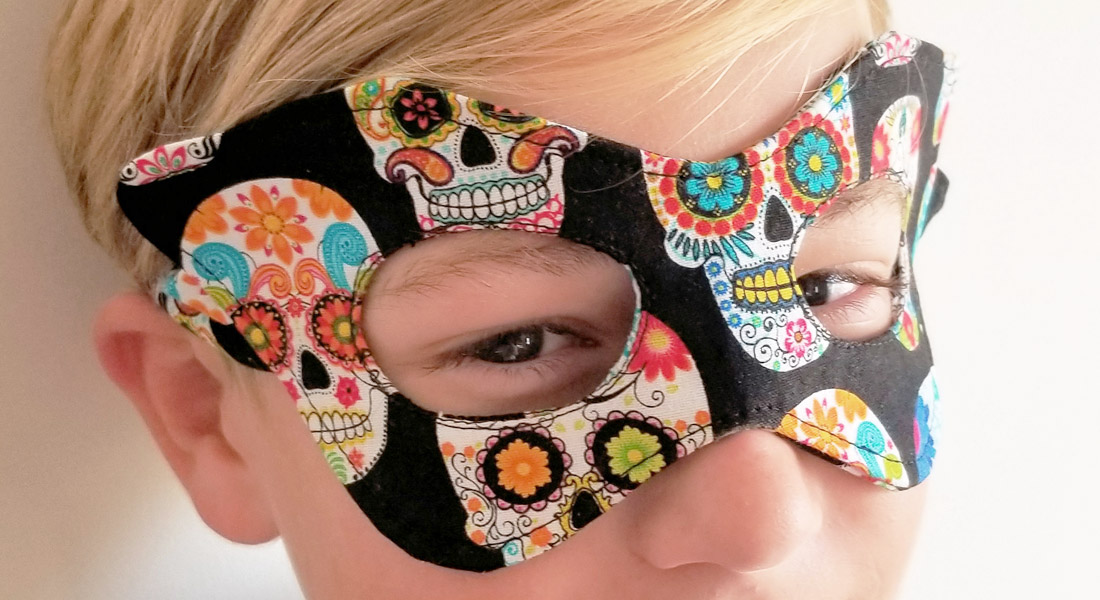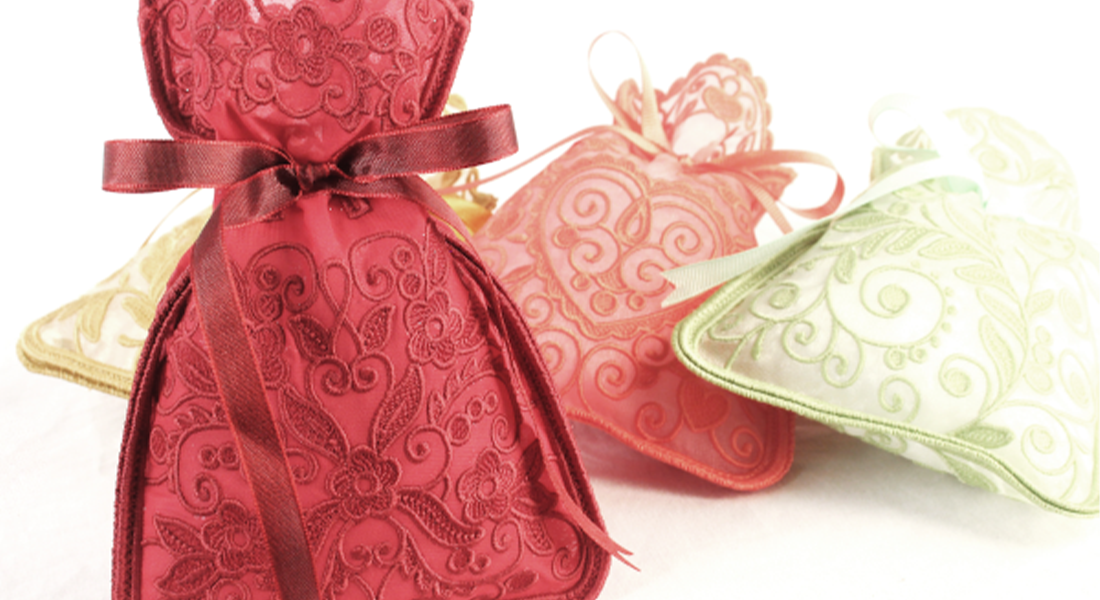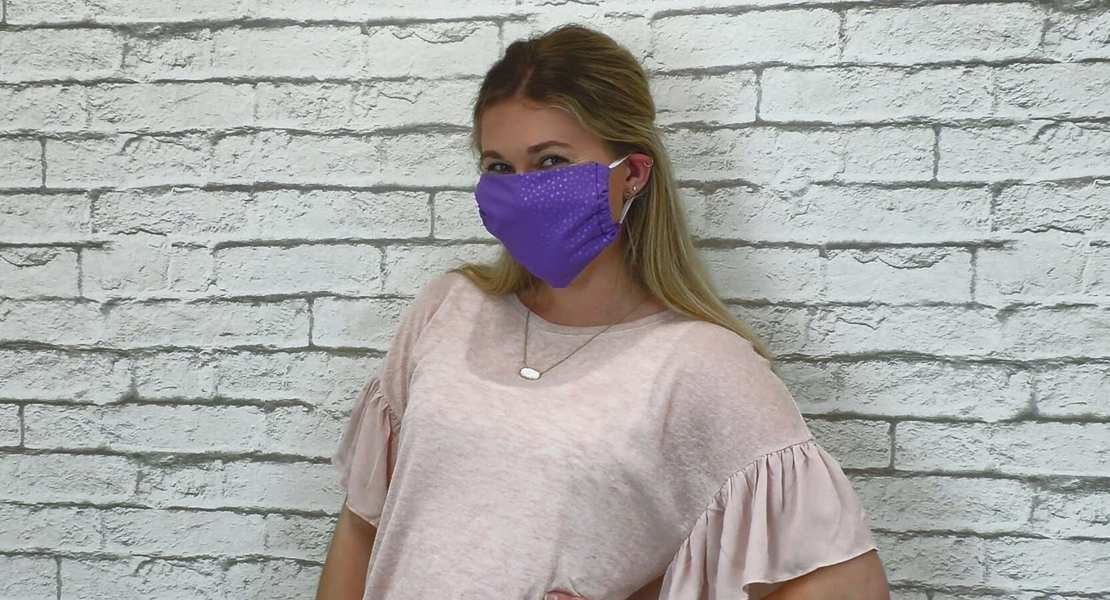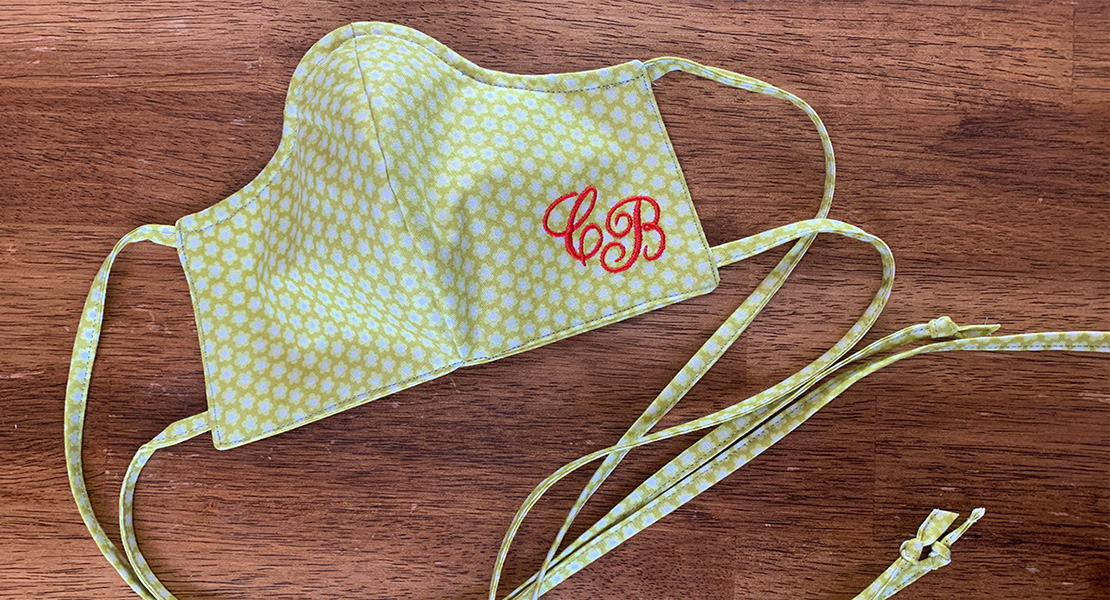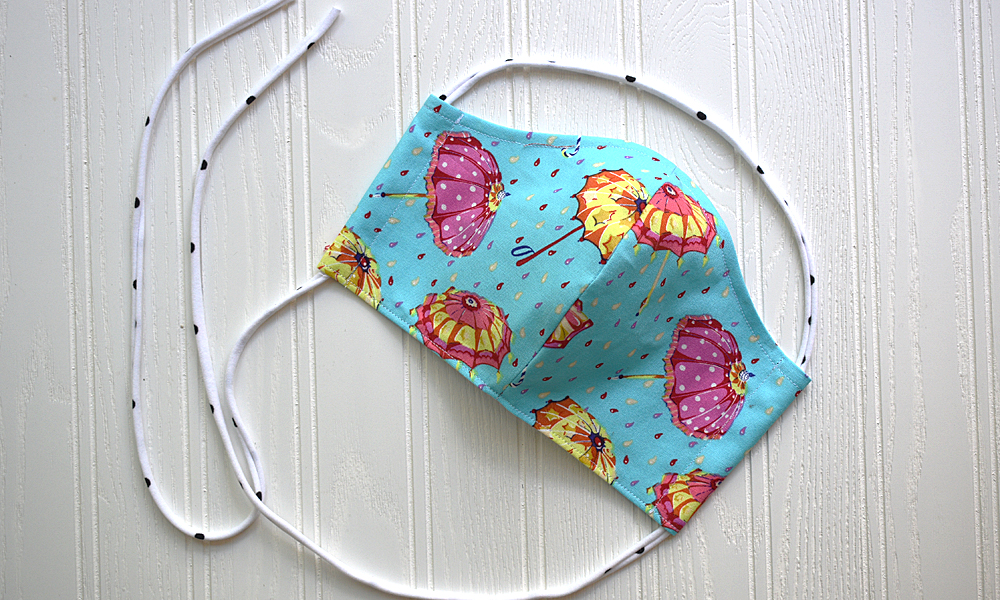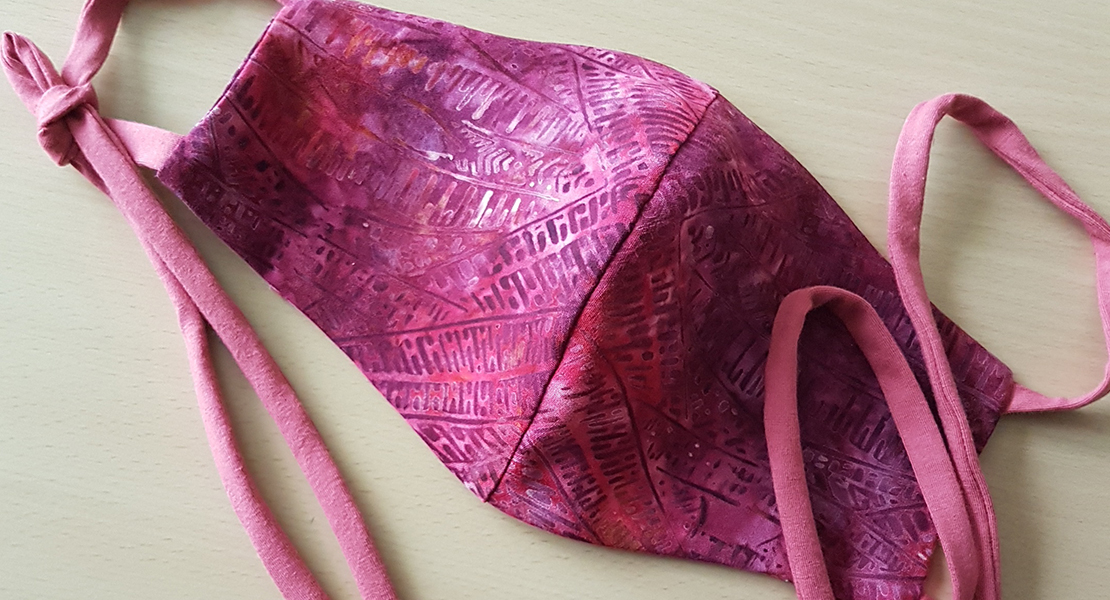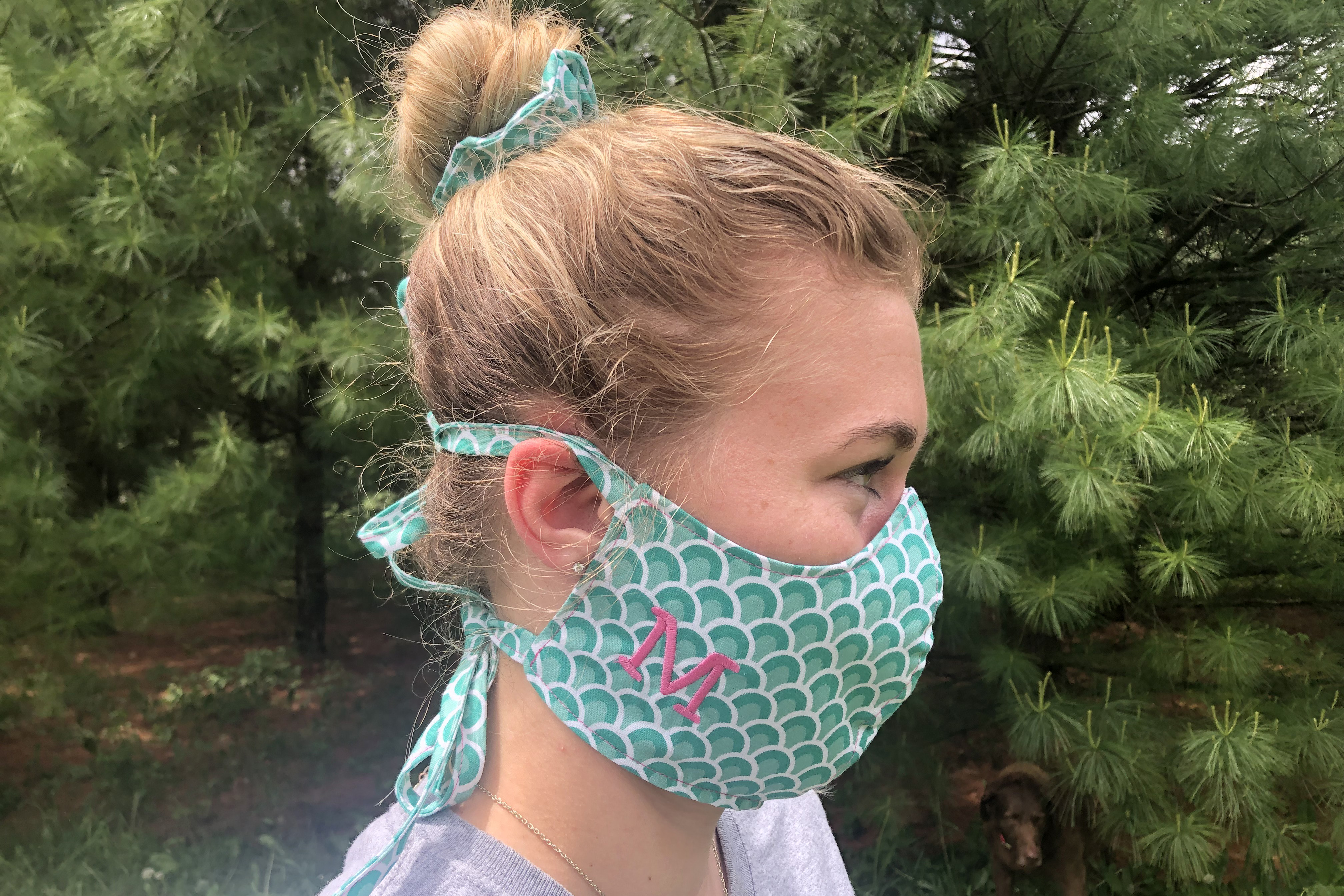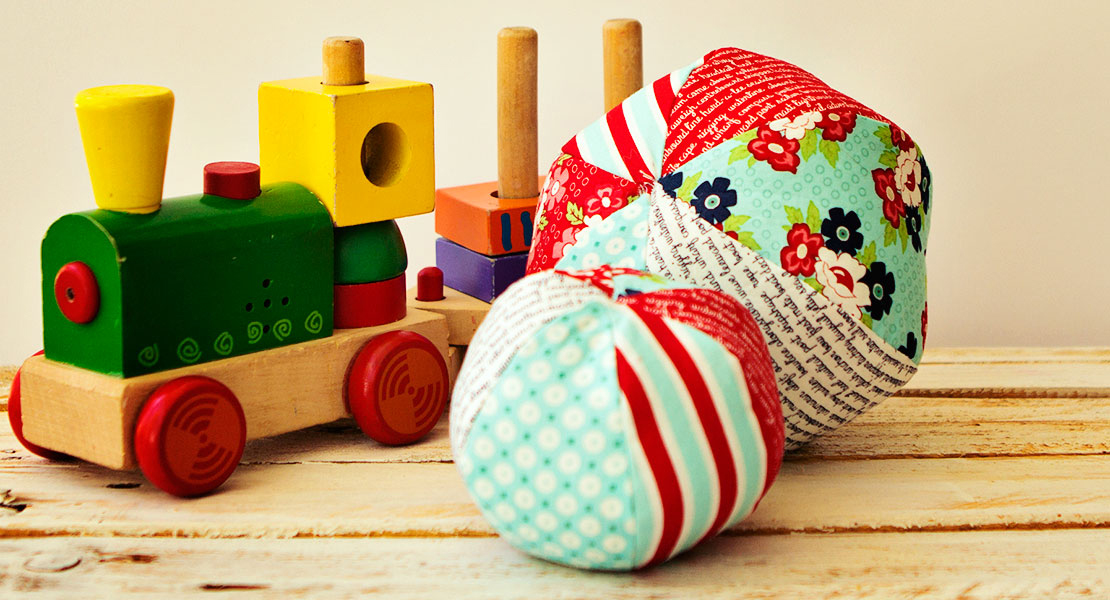Embroidered Owl Sleep Mask
Night Night Owl Embroidered Sleep Mask
A friend made me a sleep mask years ago, but with wear, the time has arrived to replace it. Since I liked the original so much, I decided to use it as my pattern for its replacement. Making the mask in Toolbox Embroidery Software is really straight forward, and adding a touch of topical embroidery was just fun!
This project can be made from fabric and batting scraps—a great way to use them up. It also makes a great gift for friends and family alike.
The overall process is simple:
- Make the pattern using the old mask.
- Compose the embroidery.
- Stitch out the embroidery.
- Cut and layer the outer fabric / thin batting / lining while inserting the elastic.
- Stitch with wrong sides together.
- Turn right side out and edge stitch.
- Take a nap!
What you will need:
- Download the sleep mask pattern here.
- 1 fat quarter of your choice. It will be enough for both the top and back layers. I like a small pattern print or a colorful solid for the top so that the embroidery will “pop”.
- Optional: use a separate lining fabric for the backing layer. Silk fabric makes for a luxurious choice!
- 1 small piece of thin batting or quilter’s flannel (just large enough for the mask plus the seam allowances)
- About 14-15 inches of 3/8” wide elastic
- 2 pieces of OESD Light Weight Tear-Away Stabilizer (to fit in a medium hoop)
- 505 Temporary Adhesive Spray
- OESD Bobbin Thread for the embroidery bobbin
- Isacord Polyester Embroidery Thread
- Mettler Silk Finish thread for sewing construction
- Size 75/11 embroidery needle for embroidery
- Size 80/12 Jeans Needle for sewing construction
STEP 1: Making the pattern and determining embroidery placement
- Trace the outline of the existing mask on plain paper. This will be your stitching line when you assemble the mask.
- Mark a vertical line centered with each eye patch.
- Mark a horizontal line half way between the top and bottom edges of the pattern.
- Where the horizontal and vertical lines intersect will be the center of each embroidery design.
(As magic would have it, the design centers ended up 4 inches apart on the pattern that I traced!) - Add a 1/4 inch seam allowance all around the first tracing: this will be your cutting line.
TIP: to ensure that both halves of the mask are symmetric, fold it in half and cut the folded paper piece along just one half of the outline.
STEP 2: Composing the embroidery
Note: I selected two owl designs from the Toolbox Cloud Library at berninacloud.com.
Start with a New design file.
- Type the file name: Night Night Owl.
- Click OK.
The main workspace screen of Toolbox will now open.
Make sure the Grid and Origin Lines are showing (in the View Tool > Grid/Origin section).
TIP: if your grid is in Metric measurements, you can change the system of measurements in the Main Toolbox Screen > Settings.
Adding the first Owl.
Using the Add Design Tool:
Select Add design > Import Design > Import Design from Cloud.
Select the Animals and Bugs category:
Select the design: Owls-1-038.
Download the design. It will be inserted in the center of the workspace.
Move it 2 inches to the left of center.
Repeat the insertion steps with design Owls-1-039.
It will be inserted in the center of the workspace.
Move it 2 inches to the right of center.
Your design should now look like this:
That’s it! Your design is composed and ready to stitch.
Note: this design will fit in a BERNINA Medium Hoop if rotated 90 degrees (to the left). To do so
- Select All (CTRL-A)
- In the Edit Tool > Scale/Rotate. Click on the Rotate Left 45º
The design will now fit in a medium hoop and look like this:
TIP: if you show the hoop, you get to see your design in context. (View > Choose Hoop. Select the Medium Hoop. Select the Show Hoop icon and the Show Template icon.)
You are now ready to Export the design to your machine.
STEP 3: Stitching Out the Embroidery
- Use a plain rectangular piece of your outward facing fabric that is larger than the finished mask plus seam allowances.
TIP: Embroidery always pulls a bit on the fabric; so by stitching the design first before cutting the pattern piece, you make sure that your piece will be true to size. - Use two layers of OESD Light Weight Tear-Away Stabilizer.
- Spray the stabilizer with 505 Temporary Adhesive Spray before applying to the fabric.
(Don’t spray between the layers of stabilizer though. This way they will be easier to tear off after the embroidery is stitched out.) - Hoop the fabric and stabilizer as one unit.
- Stitch out the design.
TIP: if your machine has a color sorting function (Color Resequence), activate it and you will eliminate some thread changes.
- After the embroidery has finished, tear away the stabilizer one layer at a time.
STEP 4: Cutting the 3 Layers and Assembling the Mask
Cutting the main piece (embroidered outward facing fabric):
- Place the embroidered fabric right side up on a flat surface.
- Position the pattern piece on top of the embroidered fabric.
- Use the intersecting lines as your guide and make sure each one meets the center of one of the owls.
TIPS:- Using the grid and origin lines from Toolbox on your computer screen will give you a visual guide to finding the center of each owl.
- Use 505 Temporary Adhesive Spray on the back of the paper pattern to make the pattern piece stay in place against the embroidered fabric.
- You can slit the paper where the guide lines intersect and fold up two opposing ‘dog ears’ to help with placement.
- Cut the main mask piece using the cutting line. (Note: this is not the first contour tracing line from the old mask, but the one that was drawn a quarter inch away.)
Cutting the other 2 layers (backing fabric and batting)
TIP: I prefer to cut the layers separately so that nothing shifts, especially around the sharper curves at the bottom of the mask.
- Cut each layer with the same pattern piece.
Cutting the elastic
- Stretch a piece of elastic around the back of your head, from temple to temple until it feels snug enough without being uncomfortable. This will be about 14 inches for an adult.
- Add 1/2 inch to the length for seam allowances.
- Cut the elastic.
You should now have 3 layers cut from the mask pattern and 1 length of elastic.
Assembling the mask
Layer the mask:
- Place the backing fabric on the batting with wrong side against the batting.
- Place the combined layers on a flat surface with the backing fabric facing right up.
- Position the elastic on the fabric.
- The ends of elastic should be flush with the edge of the fabric/batting piece.
- The elastic should be placed about 1 inch below the stitching line at the top of the piece.
(I used the horizontal guide line on my original pattern tracing.) - Make sure the elastic isn’t twisted.
- Tack down the elastic 1/8 inch from the edge of the fabric on both sides. This will make it easier to finish the assembly.
- Place the embroidered top piece face down on the right side of the backing fabric/batting and pin in place, starting with the points where the elastic reaches the edges.
- Pin or place clips to hold all layers together.
TIP: I prefer small Wonder Clips by Clover to pins as they hold the layers and edges aligned without disturbing them. They are also easier to remove as I sew.
STEP 5: Stitching the Mask together:
Note: We will leave an opening at the top to flip the mask right side out.
- Starting at the top, stitch with a 1/4 inch seam allowance around the mask, leaving a 3 inch opening.
- Trim the seam allowances as follows:
- Batting layer: around all edges except where the elastic is attached
- Bottom fabric layer: only where you stitched except where the elastic is stitched, and not along the opening. Keeping the seam allowance intact along the opening will make it easier to close the opening later.
- Top fabric: Keep the seam allowance intact all around for the top fabric.
STEP 6: Turning the mask right side out and edge stitching
- Turn the mask right side out through the opening at the top.
- Use the round end of a point turner to hand press the seam all the way around the mask.
- Turn under the remaining seam allowances at the opening.
- Press the mask, finishing with a dry iron to set the contour.
- Edge stitch the mask around all edges. This will close the opening and further secure the elastic.
TIP: Use the BERNINA Edgestitch Foot #10/10C/10D. It makes this finishing step a cinch! Also, start on one of the sides where the elastic is attached, to make the start/end points less noticeable.
Your mask is ready! Time for a nap!




















